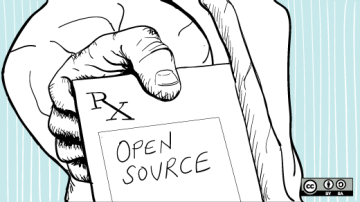
Durham, North Carolina, USA
Dr. King, who has been in the field of global medical research since 1990, is passionate about finding ways to promote open innovation, unite for-profit and non-for-profit health research, and ultimately break down health disparities and encourage health for all. He has built and led operational groups of up to 225 people and ~$300M research budgets in a variety of therapeutic areas including hematology/oncology, infectious diseases, cardiopulmonary, and internal medicine.


Authored Comments
Matthew -- thanks for the great malaria article and for your questions too. I agree that malaria and TB are not orphans -- they're better classified as NTD, as you know. I hope the comment about open-source being "only" geared for orphan/NTD didn't seem pejorative. I am a proponent of openness and collaboration and am proposing ways to get all Pharma on board. I am working towards an "and" approach here -- more openness for both orphan/NTD therapies AND, well, every therapy.
To the specifics of your question about what gets shared -- I recommend that Pharma consider sharing everything but the "source" -- the patents and CMC (basically so they still "own" the therapy and only they know how to make it). That is why I refer to this as open science rather than open source. Everything else would be shared, in particular the data on an ongoing basis (or once it is unblinded for blinded studies). So, just as you say, researchers would have a better understanding of potential drug class effects, and a better understanding of what the regulators expect.
Finally, on a related point, I wonder whether the greatest power of open science is not in making it (much) faster or cheaper to get therapies approved, but instead to make it easier and quicker to cull out therapies that are unlikely to have a good efficacy/safety profile.
And the news keep getting worse for pharma, whose reputation puts them right down at the bottom with the US Congress and Big Oil (see this post from just today -- https://www.fiercepharma.com/story/can-pharma-salvage-its-tarnished-rep-…). As for my research, several of the execs I've interviewed spoke to this point -- here is a quote from a CEO: “[open science] can help pharma from a public relations perspective... to show that pharma cares about patients, not just profits.”